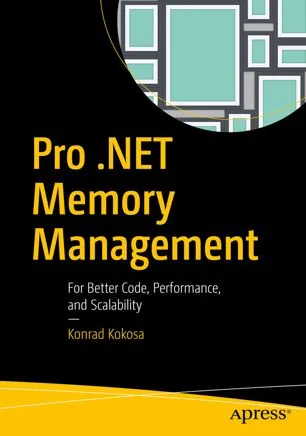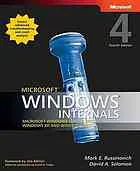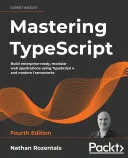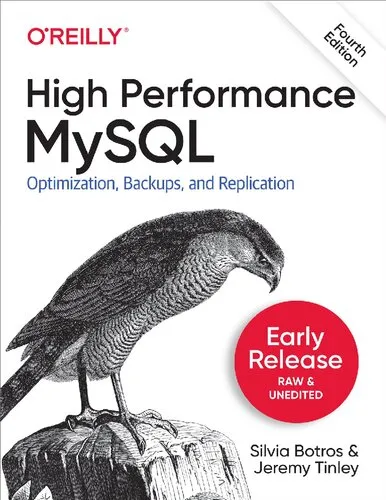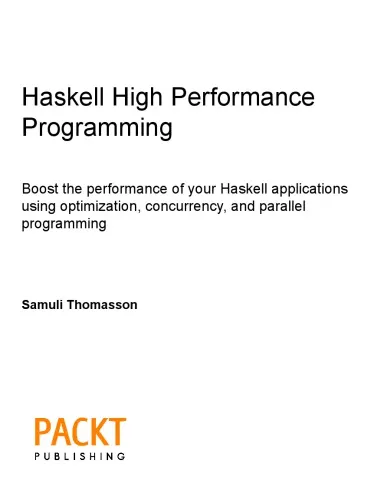Pro .NET Memory Management: For Better Code, Performance, and Scalability
4.5
Reviews from our users

You Can Ask your questions from this book's AI after Login
Each download or ask from book AI costs 2 points. To earn more free points, please visit the Points Guide Page and complete some valuable actions.Related Refrences:
Persian Summary
Dive into the depths of .NET memory management with “Pro .NET Memory Management: For Better Code, Performance, and Scalability,” a definitive guide designed for developers who want to sharpen their understanding of how memory handling affects application performance. With a balanced blend of theory and practical examples, this book deciphers the complex concepts of memory management in .NET to empower you to write efficient, scalable, and high-performing applications.
Detailed Summary of the Book
In "Pro .NET Memory Management," Konrad Kokosa leads an insightful exploration into the inner workings of .NET's memory model. The book starts by introducing fundamental memory concepts, setting the stage for gradually delving into more advanced topics. Readers will find a thorough analysis of the .NET garbage collector (GC), coding patterns that influence memory allocation, and techniques for diagnosing and improving memory usage in applications.
The author meticulously breaks down various elements of the .NET runtime that impact memory management, such as value and reference types, heap and stack allocations, and memory pressure management. With a hands-on approach, complex subjects like weak references, finalization, and interop memory management become more approachable. Readers will gain knowledge about disposable patterns, object pooling, and memory leaks, which equips them with practical skills to tackle potential performance bottlenecks.
The book does not stop at teaching how things work; it equips developers with diagnostic tools and environmentally-conscious coding techniques essential for memory-sensitive applications. Through detailed case studies, Konrad demonstrates the profound impact of memory management on application reliability and user experience. The careful balance between detailed technical explanations and real-world scenarios allows developers of all levels to enhance their coding strategy substantially.
Key Takeaways
- Comprehensive understanding of .NET's garbage collection mechanism.
- Insight into the lifecycle of objects and memory allocation patterns.
- Strategies to optimize memory usage and improve application performance.
- Techniques for identifying and resolving memory leaks.
- Best practices for handling unmanaged resources and reducing memory overhead.
- Tools and methodologies for monitoring and diagnosing memory-related issues in .NET applications.
Famous Quotes from the Book
"Understanding memory management is not just about prevention - it's about empowerment to enhance and innovate."
"Effective memory management lies at the heart of a seamless user experience and is crucial for application scalability."
Why This Book Matters
"Pro .NET Memory Management" is an essential resource for every .NET developer. As applications demand more efficiency and resource management, understanding the nuances of .NET memory management becomes a critical skill. This book matters because it demystifies the complex architecture of .NET's memory model and presents it in a way that is accessible and applicable to everyday programming problems.
In today's technology landscape, where performance is a keystone for application success, developers equipped with in-depth knowledge of memory management can significantly optimize resource allocation and improve application responsiveness. Konrad Kokosa's work empowers developers to write code that is not only functional but also efficient and sustainable, preparing them for challenges faced while building both small and large-scale enterprise applications.
Free Direct Download
You Can Download this book after Login
Accessing books through legal platforms and public libraries not only supports the rights of authors and publishers but also contributes to the sustainability of reading culture. Before downloading, please take a moment to consider these options.
Find this book on other platforms:
WorldCat helps you find books in libraries worldwide.
See ratings, reviews, and discussions on Goodreads.
Find and buy rare or used books on AbeBooks.
Questions about Book
2367
بازدید4.5
امتیاز0
نظر98%
رضایتReviews:
4.5
Based on 0 users review
Questions & Answers
Ask questions about this book or help others by answering
No questions yet. Be the first to ask!
